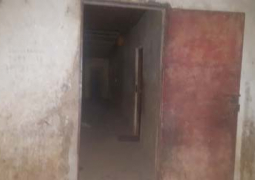Stakeholders in the agricultural sector on Tuesday gathered at the Baobab Hotel to launch the West African Agricultural Productivity Programme (WAAPP).
According to officials handling the project, the WAAPP is being funded under the financing mechanism of World Bank to a tune of US$12 million.
The technical launching workshop attracted about thirty participants from various partner institutions in the country.
Sheikh Tijan Sosseh, WAAPP coordinator, in his welcoming remarks, expressed delight with the turnout of participants at the workshop.
He gave an overview of the project saying the objective of the WAAPP is to improve agricultural production and productivity in the sub-region.
The WAAPP is a World Bank-funded programme being implemented in the ECOWAS region by CORAF and at the national levels by a National Coordination Unit at the Ministries of Agriculture of the respective countries.
The
first phase of the WAAPP involves three countries, namely
The WAAPP will promote the empowerment of end-users, farmers and their organizations and also facilitate collaboration among researchers, extension services, farmers, universities, the private sector and civil society in the pursuit of generating and disseminating appropriate agricultural technologies thereby contributing to sustain agricultural productivity in the ECOWAS region’s top priority commodity sub-sectors.
The WAAPP is not only national in scope but also has regional dimension; hence a strong communication strategy is required for the provision of a framework for communication activities, which will not only provide visibility for the project but also employ all communication platforms to disseminate relevant agricultural technologies; particularly to the rural resource poor farmers.
For his part, Ousman Gyasi of World Bank Accra office and also task team leader for WAAPP Gambia, said Gambia WAAPP is focusing on commodities, like rice, groundnut, and maize.
These are commodities that are contributing to poverty reduction, he said, adding that at the World Bank level, officers are happy about their contribution to WAAPP in the sense that WAAPP is one of their most important strategies.
In his official opening address, the permanent secretary of the Ministry of Agriculture, Sanna Dahaba, said the forum represents a significant milestone in the process of technology development, dissemination and adoption for enhancing the productivity of the agricultural sector.
“There
is a growing disparity between population growth and food producing capacity of
the developing world, especially countries in sub-Saharan
He said further that to address the situation and increase agricultural productivity to the level needed to significantly contribute to the reduction of poverty and food insecurity, will require, among other factors, accelerated adoption of the most promising available technologies to support immediate improvement of production by linking research and extension system to producers.
PS Dahaba added that by supporting the generation and adoption of improved agricultural technologies, the WAAPP will help to further the common West Africa Agricultural Policy (ECOWAP) objectives.
“The


